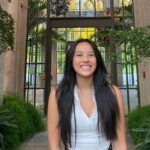Undergraduate Research Assistants
Academic Year 2023-2024 URAs
Gelila Ambellu
Undergraduate Student, BSPH Health Policy and Management, Minor in Medicine, Literature, and Culture
Gelila Ambellu is a junior majoring in Health Policy and Management and considering a minor in Medicine, Literature, and Culture. HHIVE has allowed her to merge her love of literature with her passion for health equity and social justice. Galilee’s exposure to the health humanities has allowed her to consider factors, such as the social authority of physicians and patient explanatory models while studying preventative medicine. Her academic interests lie in narrative medicine, ethnographic research, and public health. In the future, Galilee hopes to become a health behavior researcher, where she will be able to collect qualitative data on patients’ perceived severity and susceptibility to illness. She is interested in learning more about how varying environmental contexts influence patients’ views on health. Her ultimate goal is to increase the accessibility and affordability of care while rebuilding patients’ trust in the healthcare system.
 Emma Bryson
Emma Bryson
Undergraduate Student, BS Psychology and Hispanic Studies double major
Throughout my life, I have felt myself torn between both science and the humanities. I have always been fascinated by scientific discovery while also wanting to expand my knowledge of humanitarian issues, leading me to the HHIVE lab. In my future medical career, I want to approach each patient with not only the knowledge of the science behind their diagnosis, but also from an emphatic view that recognizes the other factors in their life that impact their health care experience. I am particularly interested in questions of access to healthcare and healthcare experiences of those from different socioeconomic backgrounds. Looking at the different barriers that prevent people from accessing healthcare and what can be done to overcome these barriers is something that I hope to pursue not only in undergrad but also after I leave Carolina.
 Claire Burke
Claire Burke
Undergraduate Student, Major in Health Humanities
Claire is currently a junior from Fayetteville, NC, pursuing a degree in Health Humanities. Initially, her interests mainly surrounded the study of racial disparities within the US and abroad. However, after the pandemic, she grew to understand just how much those same determinants interacted with health and decided to combine her attractions of health inequities, social determinants, and intersectionality. HHIVE lab has offered the opportunity to explore these essential humanistic conversations relating to systems of health. Claire is specifically interested in centering the voices/ narratives of minority populations, and the research of language hierarchy within American biomedicine through a humanistic perspective. After completing her undergraduate degree, she hopes to earn her Accelerated Bachelor of Science in Nursing and become a Developmental Disability nurse, while improving her work proficiency in ASL and Spanish.
Gargi Dixit
Undergraduate Student, BSPH Biostatistics, Minor in Chemistry
As a student-researcher in bioinformatics and oncology, Gargi is looking forward to exploring her interests in the health humanities through HHIVE. She was introduced to the health humanities through a reading group called Narratives in Medicine at UNC, where she learned a lot about health inequities and the history of healthcare in the US through the texts discussed. She’s interested in narrative medicine and in exploring how different cultural backgrounds influence healthcare experiences and outcomes. As a birth doula, she hopes to integrate her volunteer experiences with her work at HHIVE.
 Noelle Angelique Escobal
Noelle Angelique Escobal
Undergraduate Student, BA English and Comparative Literature, Minor in Chemistry
Noelle Escobal is a senior majoring in English and Comparative Literature. Her interest in the health humanities stems from a curiosity in how her humanities major can intersect with STEM and other health related fields. Being a part of HHIVE gives her the opportunity to gain invaluable insight into her everyday experiences as a Clinical Support Technician at the UNC Hospitals. In addition, as a prospective physician, she hopes to use her knowledge of the Health Humanities to help her foster better patient understanding and care. With an interest in medicine, it is her goal to provide high-quality, person-centered care and comfort for older adults as well as those with disabilities.
 Abigail Gillespie
Abigail Gillespie
Undergraduate Student, BA Biology and English & Comparative Literature double major, Minor in African, African American, and Diaspora Studies
Abigail Gillespie is a senior at the University of North Carolina at Chapel Hill, double majoring in Biology and English and Comparative Literature with a minor in African, African American, and Diaspora Studies. Gillespie serves as the Vice President of Programming for the Carolina Union Activities Board, writes cases for UNC’s Bioethics Club, and is actively involved with Out in STEM, which helps LGBTQ+ students to succeed. Her research interests include how narrative art informs disease patterns and how art movements can control disease spread. Gillespie presented her work on the artwork of Guadalupe Maravilla at the 2022 Richard Macksey National Undergraduate Humanities Research Symposium, which focused on using narrative art to understand cancer prevalence within American Hispanic/Latino/a/x communities. Under the mentorship of Dr. Seth Kotch, her work during the summer of 2022 examined a street art movement in Nairobi, Kenya, and its use in controlling the spread of coronavirus. This past summer, Gillespie studied Kiswahili with the Critical Language Scholarship Program. After receiving undergraduate education, Gillespie plans to pursue a graduate degree in the History of Medicine and would like to teach Medical Humanities courses and contribute to the American medical education process.
Maya Groff
Undergraduate Student, BA Chemistry
Throughout my academic career, I have fostered interests in the hard sciences as well as humanities, which have grown to center around medicine and healthcare. The health humanities is a means to merge these interests. I am particularly drawn to using a narrative lens to understand populations being served, healthcare inequality, and how to cultivate a patient-centered approach to medicine. The humanities offers a widely digestible platform for the nuances and inequality of medicine to be examined and shared, with the goal of improving healthcare for all. Through the HHIVE Lab, I am excited for the opportunity to cultivate my interest in the health humanities and contribute to its efforts.
Fiona Hasanaj
Undergraduate Student, BA Biology, Minor in Medicine, Literature, and Culture
Yearning to find the intersection between humanities and medicine, Fiona Hasanaj concluded that there were no opportunities at UNC that could provide this. With the discovery of the Medicine, Literature, and Culture minor, Fiona began to delve into this interdisciplinary approach. The HHIVE lab has opened up a gateway for Fiona that will allow her to attain a more humanitarian and nuanced perspective in her future as a healthcare provider.
 Isabel Kakacek
Isabel Kakacek
Undergraduate Student, BA Medical Anthropology and English & Comparative Literature with a concentration in Medicine, Literature, and Culture
Isabel entered UNC with a distinct love for both English and Science but an aversion to physics and calculus classes, which led her to find the Health Humanities program and the HHIVE Lab in particular. She is enthusiastic about researching intersections between medicine and culture with a specific interest in illness narratives. She hopes to one day incorporate Health Humanities curriculums in universities around the world and aim for a more ethical and compassionate healthcare system.
 Baylee Materia
Baylee Materia
Undergraduate Student, BA Neuroscience, Pre-Med
When Baylee Materia made the decision to enter college as a STEM major, she assumed that she would have to toss her love of humanities aside. Discovering the HHIVE lab taught her not only that she can merge these seemingly contrasting passions of hers, but that an interdisciplinary approach is essential in a pre-medical curriculum. The job of a physician goes beyond the concrete science and technical intellect; one must be emotionally intelligent and able to understand the complex socioeconomic and cultural determinants of health. With a background in the health humanities, Baylee hopes to become a member of a new generation of healthcare professionals that approaches their work with a more nuanced and compassionate perspective.
Hilary Nguyen
Undergraduate Student, Double Major in Medical Anthropology and English and Comparative Literature with concentration in Medicine, Literature, and Culture
In my years growing up in America, I had always thought biomedicine and evidence-based medicine were the best approaches to optimal human health. However, through my classes at UNC in both of my majors, I have begun to address these biases and question our system of healthcare—questions such as how it gained the power it has and what optimal health even looks like. After taking ENGL269, I became further compelled to understand the narratives of those who had been silenced by biomedicine’s power. In this system, healing the patient only refers to healing their body and symptoms. It neglects to acknowledge the liminality of healing and illness. In my majors, I hope to gain the close reading, analytical skills, and a myriad of perspectives to enact a shift in biomedical perceptions away from just curing the disease, to healing the patient.
 Catherine Pabalate
Catherine Pabalate
Undergraduate Student, BS in Biology and English & Comparative Literature double major, Minor in Medical Anthropology
Catherine Pabalate is a sophomore at UNC Chapel Hill who is interested in pursuing the health humanities in her professional career. While she originally entered UNC with a focus on the biological aspect of human condition, she found herself more captivated by English’s methodologies and approaches to health. Her academic interests revolve around how the experiences of health and illness are demonstrated in personal narrative and ethnography. In her health humanities studies, Catherine works to incorporate knowledge from additional disciplines, such as anthropology, sociology, and geography. After graduating, she plans to attend a graduate program in the health humanities, and she hopes to work in academia so that she can educate others about this field’s significance.
 Kaitlin Parker
Kaitlin Parker
Undergraduate Student, BS in Biology, Minor in Chemistry, Minor in Medicine, Literature, and Culture
Kaitlin is a sophomore from Raleigh, NC studying biology at UNC Chapel Hill. As a pre-dental student, her interests in health humanities stemmed from the diverse interdisciplinary classes offered at UNC. After taking a health humanities course, Kaitlin understood the vital role the humanities play within healthcare. As she hopes to better healthcare with the addition of humanities for others and as a future provider, Kaitlin is primarily interested in overcoming cultural and systemic barriers that make care inadequate or inaccessible for many people. She ultimately believes the HHIVE Lab offers a distinctive avenue for herself and others to make changes in the field by combining medicine and health to change the future for patients and practitioners. Beyond the lab, Kaitlin is routinely involved in community outreach, volunteering with Habitat for Humanity, ArtHeels, and Carolina Service Corps to facilitate connections for all people. After obtaining a four-year degree, she hopes to attend dental school to further her education and specialize in orthodontics.
 Reyna Patel
Reyna Patel
Undergraduate Student, BA Sociology, BA Medical Anthropology
Reyna Patel is a Sociology and Medical Anthropology Major in her Sophomore year at UNC Chapel Hill. She is interested in studying the experience of healing and illness in order to work toward improved population health and a better system of care. She was by HHIVE Lab’s interdisciplinary approach, passionate community, and innovative projects. She believes HHIVE’s human-centered perspective on health research will allow her to explore, bring awareness to, and combat disparities in care access and outcomes.
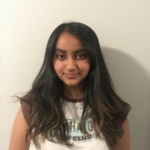 Prasha Sheth
Prasha Sheth
Undergraduate Student, BS Biochemistry
Prasha is a sophomore biochemistry major at UNC Chapel Hill. Born in Japan to two Indian immigrants, she spent the first 18 years of her life in Tokyo where she was exposed to different cultures and experiences. She first got exposed to the intersection between health and humanities when she took a medical anthropology course her freshman year at UNC, which was a whole new avenue for her. She hopes to bring new perspectives to HHIVE and further her interest and understanding of the nuances of experiences in health settings.
 Tejaswi Siripurapu
Tejaswi Siripurapu
Undergraduate Student, BA Psychology and Public Policy
Teja’s interest in the humanities greatly outweighed her interest in medicine. She never wanted to get into the nitty-gritty science stuff that she grew up believing doctors and healthcare professionals did. She’d always assumed that eventually, she needed to give one up to have the other. Coming to UNC and having the privilege to get involved in organizations such as HHIVE and take classes in the health humanities showed her not only how possible it is to have both but how vital it is. Teja learned that the key to being a good healthcare professional is to have an in-depth understanding of the population you serve, which is only possible through the health humanities. In the future, she hopes to serve the underprivileged population of North Carolina, and someday beyond, by employing this knowledge and expertise in the hard sciences and humanities. She hopes to bridge healthcare gaps and improve health infrastructure. She is committed to ensuring that health knowledge, health literacy, and health competence are readily accessible to all individuals.
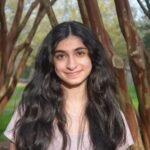 Rida Talpur
Rida Talpur
Undergraduate Student, BS Biology, Minor in Neuroscience
Rida is a sophomore passionate about growing her knowledge in health humanities and aiding research efforts to uncover the dynamic causes of psychological disorders and various biological diseases. For Rida, her journey with HHIVE began through an introductory course in health humanities. The course comprises interdisciplinary approaches to diseases and reflects the department’s aim to investigate every facet of human health. As a prospective psychiatrist, she considers how historical and literary perspectives aided in the world’s understanding of the human mind and body. She prioritizes addressing physiological complications with the diligence it demands, and HHIVE embodies that mission. She intends to evolve her understanding of under-resourced research sects of ‘ambiguously defined,’ complex diseases. She was involved in an internship with Breast Cancer Hub, in which she raised awareness about common misconceptions surrounding Breast Cancer through graphic designs. She also worked in the Mayor’s Youth Employment Program, researching the relationship between socioeconomic status and rising obesity rates, and uncovered financial boundaries to openly accessing healthcare resources. She combatted this issue by creating a fitness and dietary application, in which one could contact healthcare professionals for medical assistance.
Sophia Vona
Undergraduate Student, BS Biology and BA English (Literature, Medicine, and Culture), Minor in Chemistry
Sophia is a sophomore from Charlotte, NC. She grew up loving her science classes and also staying up late reading, but assumed her humanities and scientific interests had little room to overlap. She had her “a-ha” moment when she completed a research internship with YCCI on strategies for recruiting marginalized populations to clinical trials. Strong scientific research skills are vital for designing effective clinical trials, but so are applying the principles of health humanities (though she did not yet recognize “health humanities” described what she was doing) in order to recruit diverse participants to clinical trials; this is because the scientific data is only narrowly applicable when medical interventions are tested only on small subsets of the population (historically, clinical trials are conducted with adult, caucasian, male subjects). Since this experience, she has understood not only how the subjects can overlap, but also how they can complement each other. She hopes to build on her ability to utilize these interdisciplinary ideas to solve problems in healthcare, both as an undergrad and in her career.
She also does research on HIV Vaccine development in the De Paris lab, is the mentorship chair for Out in Stem @ UNC (oSTEM), and provides free tutoring to K-12 students through Learn to Be.
Katy Waddell
Undergraduate Student, BA English and Comparative Literature and Psychology, Minor in Media and Journalism
Katy is pursuing a major in both English and Psychology and a minor in Journalism at UNC. Prior to attending UNC, Katy worked on a research project testing the feasibility of utilizing virtual reality technology to create a concussion rehabilitation tool. Her research project furthered her interest in the intersection between medicine and the humanities, specifically relating to altering the public narrative surrounding concussions and traumatic brain injuries. She hopes to continue to explore her interests in the health humanities through projects in the lab.
Past URAs
Noa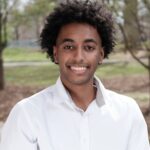 h Ashenafi
h Ashenafi
Undergraduate Student, BSPH Nutrition-Science and Research, Minor in Medicine, Literature, and Culture
While I have always acknowledged the importance of biomedicine, the health humanities at UNC have taught me that there is more to determining whether someone is healthy. Throughout my undergraduate career, I’ve become interested in the practice of alternative medicine, especially those in other cultures. The health humanities have affirmed to me that total healing comes from addressing the body’s physical, emotional, and mental health. Teaching the health humanities to aspiring health workers will lead to more empathetic and successful patient care. I’m passionate about using teachings from the health humanities to provide patients with the best care and treatment.
Maliha Bhuiyan
Undergraduate Student, Major in Nutrition Science and Research (BSPH) and Medical Anthropology
Minors in Biology and Chemistry
My interest in medicine and medical humanities arose from witnessing a diverse spectrum of healthcare across nations. During my own journey as a patient, I travelled in hopes of finding better medical care— an experience which opened my eyes to various approaches to patient care as well as the various exchanges that take place in spaces of healing. Through observing and experiencing the exhilarating impacts of healing, I developed a deep appreciation for medicine; however, I realized that healing was centered around numerical charts and vitals, with less regard to the individuality of patients themselves. This realization has led to my interest in medical humanities as I am fascinated by the dynamics of physician-patient interactions and ways such interactions can be further strengthened for better care.
 Neha Bollam
Neha Bollam
Undergraduate Student, BSPH Environmental Health Sciences, BS Neuroscience, Minor in Chemistry
Interested in the intersection between storytelling, medicine, and environmental health, HHIVE is the perfect place to blend my academic interests together. The health humanities have been integral in my journey to becoming as a physician as it has enabled me to examine patient care through concepts such as dignity and legacy. I hope to translate the insight I have gained from the HHIVE lab into my future experiences as I pursue my interest in emergency medicine.
 Tulsi Patel
Tulsi Patel
Undergraduate Student, BA Neuroscience and Medical Anthropology
Tulsi Patel has always thought that her love for the hard sciences and her appreciation for cultural studies had to be isolated. The realm of health humanities proves that these two fields can be meaningfully melded together. She is specifically interested in how cultural values affect people’s perceptions of health and how that influences their healthcare experiences. She aims to learn more about these topics in the context of the Asian-American community and rural populations. HHIVE offers the opportunity to bridge her majors while providing the humanistic, narrative-driven side of medicine. She ultimately hopes to become more informed about how culture drives the patient experience and to gain a holistic perspective of what it means to be healthy.
 Sarah Prosser
Sarah Prosser
Undergraduate Student, BS in Biology, BA in English and Comparative Literature, Minor in Chemistry
Sarah is currently in her third year of her undergraduate degree at Carolina. As a pre-med student, she became interested in health humanities after taking English 105i in her first year. She had never been exposed to the idea of medical practice should not be limited to the Western, biomedicine model, and this drew her attention to the field. Sarah is primarily interested in physician-patient relationships and the way in which these relationships can be improved to save lives by focusing on the patient’s culture and experiences. Outside of the HHIVE Lab, Sarah also volunteers as the Hospital and Family Relations Chair for Carolina for the Kids, and as a patient transporter at the UNC Medical Center. After completing her undergraduate degree, she hopes to earn a master’s degree in Medicine, Literature, and Culture, and then attend medical school.
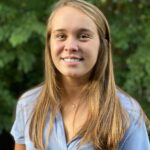 Abigail Pugh
Abigail Pugh
Undergraduate Student, BA Business Administration and Health Policy and Management, Minor in Medicine, Literature, and Culture
Abigail Pugh is a current sophomore from Raleigh, NC, who plays on the women’s club lacrosse team and is on the Executive Branch’s Student Wellness and Safety Staff. Her interest in the health humanities stems from a project she conducted in a first year seminar centered around the Stories to Save Lives Project, in which the class investigated the oral histories of a wide array of individuals within North Carolina. Specifically, Abigail is passionate about the variance within maternal mortality rates in the current U.S between women of different races, ethnicities, socioeconomic backgrounds, and other divisive identifying characteristics. She is a firm believer that an individual’s explanatory model within medicine is directly correlated with certain societal expectations and modes of oppression they may or may not be exposed to on a daily basis outside of healthcare. Her goal is not to become a physician, nurse, or medical professional, but instead to work on the administrative side of healthcare to diminish the inequalities and inequities that prevent all people to getting equitable access to care and treatments. She also has a great passion towards achieving total childhood literacy within the U.S as an individual’s literacy rate is a direct predictor of later success in life and the ability to break free from generational cycles of crime, poverty, abuse, and addiction.
 Shamar Wilson
Shamar Wilson
Major in Pre-Health Policy & Management
Carolina Scholar
As a black student growing up in rural North Carolina, learning in an educational curriculum that was primarily centered around white voices and white stories made it difficult for me to find my place as a writer and storyteller. In recent years, through seeking mentors, role models, and diversified courses I have been able to gain exposure to historically unheard narratives. The experiences and perspectives that I gained from hearing these narratives have encouraged me to find my own voice through writing/storytelling while also revealing that I, too, can have an impact on students like myself. Listening and advocating for marginalized communities is a practice that I strive to further develop every day. Currently, I work as a NA I at UNC Hospitals and I view the time I spend with my patients as a learning experience on how I can further understand the life stories of others. With one of my goals being to become a physician, it is my goal to listen, understand, and validate the stories, perspectives, and experiences of my patients. I hope to eventually do work in preventive medicine in rural communities to aid in eliminating healthcare disparities such as access to healthcare.





